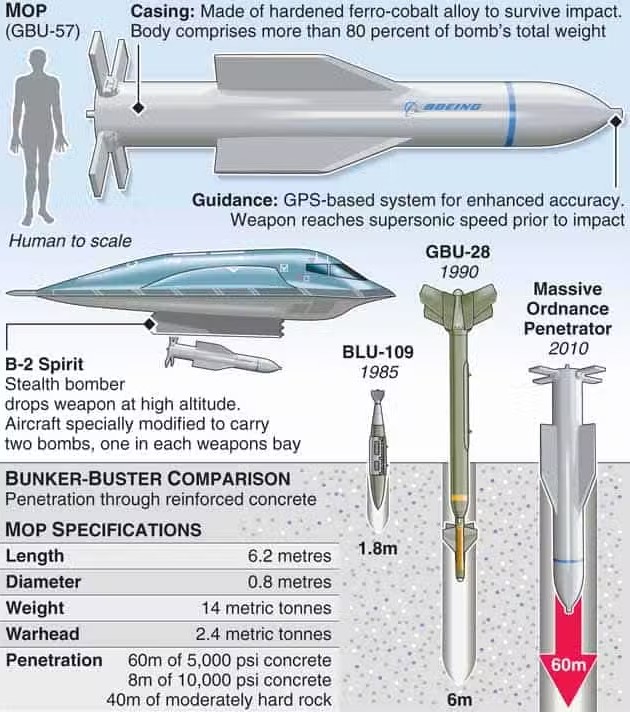A message to Iran? USAF B-2 bombers destroy Houthi weapons depots in Yemen
United States Air Force (USAF) B-2 Spirit bombers carried out precision strikes against five reinforced underground ammunition storage facilities in Houthi-controlled areas of Yemen.
US Defense Secretary Lloyd Austin announced on October 16th the military operation against the underground facilities where the Houthis were believed to be storing various components of weapons used to attack civilian and military vessels throughout the Red Sea and Gulf of Aden region, through which approximately 12% of international maritime trade passes.
“The employment of U.S. Air Force B-2 Spirit long-range stealth bombers demonstrate U.S. global strike capabilities to take action against these targets when necessary, anytime, anywhere.”, said Lloyd Austin in the statement released by the White House..
According to Reuters, Yemeni Houthi fighters have carried out nearly 100 attacks on ships crossing the Red Sea since November in solidarity with Palestinians in Israel’s year-long war in Gaza. So far they managed to sink two ships, seized another and were responsible for the deaths of at least four crew members. They also carried out drone and missile attacks against the southern Israeli city of Eliat.

The attacks carried out by Houthi rebels against maritime trade have led to a drastic reduction in traffic through the Suez Canal, exceeding 60%. In response to this threat, numerous vessels are forced to take a much longer and more expensive alternative route around the Cape of Good Hope. This diversion adds nearly 3,500 nautical miles and an additional 10 to 12 days to each journey, significantly impacting global logistics by increasing operational costs and maritime insurance.
The bombing of the munitions storage facilities by the B-2s was ordered by President Biden to further diminish the Houthis’ ability to continue their offensive campaign on one of the world’s most important trade routes.
This attack can also be interpreted as a message to Iran, the main supporter and supplier of weaponry to the Houthis, that the U.S. can strike at the facilities of its adversaries, «no matter how deeply buried underground, hardened, or fortified» they may be.

/https://aviacionlinecdn.eleco.com.ar/media/2024/10/B-2-ataque-huties.jpg)
Para comentar, debés estar registradoPor favor, iniciá sesión